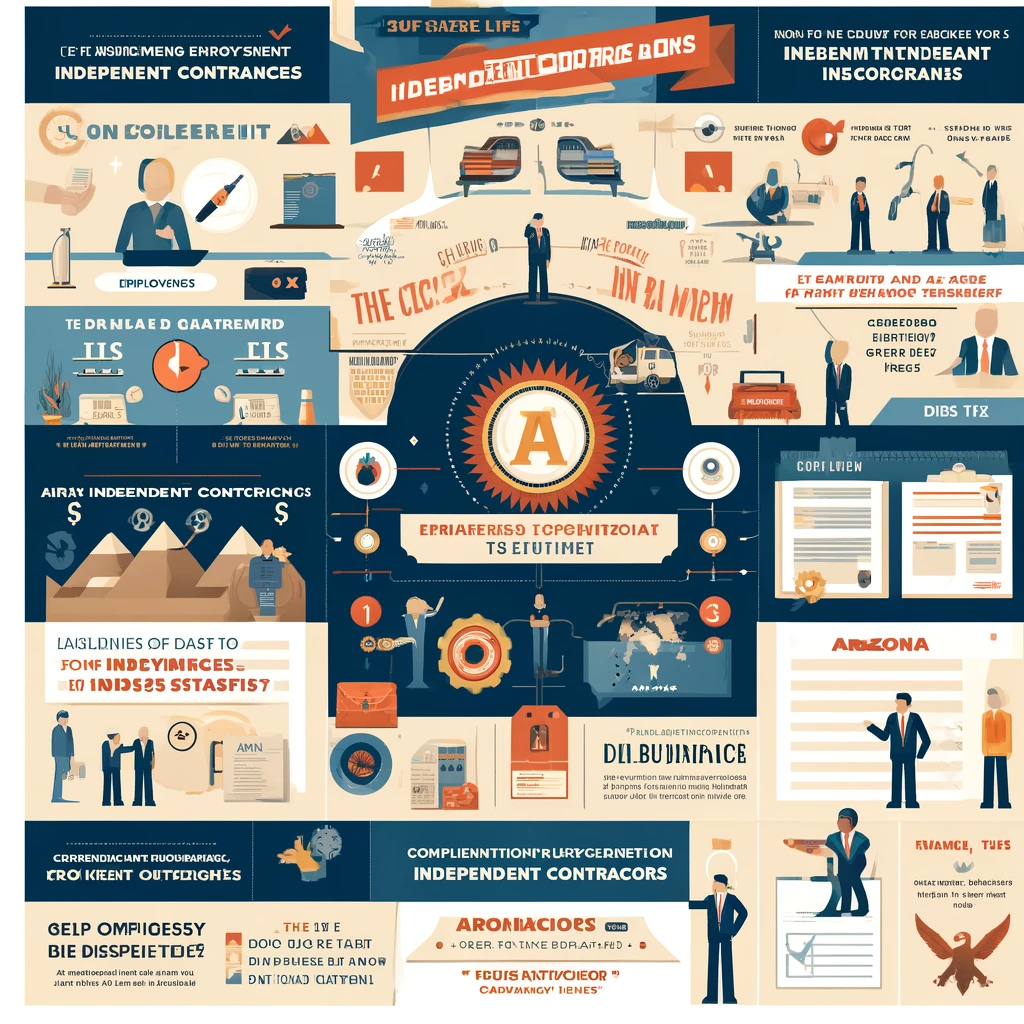Navigating Arizona's Independent Contractor Laws: A Comprehensive Guide
In the ever-evolving landscape of the gig economy, Arizona's approach to independent contractor laws plays a crucial role in defining the working relationship between service providers and the entities that hire them. Understanding these laws is vital for both businesses and individuals to ensure compliance, avoid misclassification, and foster healthy working relationships. This comprehensive guide delves into the specifics of independent contractor laws in Arizona, highlighting legal considerations, classifications, and best practices, enhanced with authoritative .gov, .edu, and Wikipedia links for increased credibility.

Understanding Independent Contractor Status in Arizona
Arizona's independent contractor laws are designed to distinguish independent contractors from employees, a distinction that has significant implications for tax, liability, and employment law compliance. The Arizona Department of Economic Security (DES) provides guidelines that help in determining an individual's employment status.
Legal Framework
The legal framework for independent contractors in Arizona is primarily based on state statutes and the "economic reality" test, which examines the degree of control exercised by the employer over the work being performed and the economic dependence of the worker on the employer. Additionally, Arizona has introduced specific statutes, such as the "Declaration of Independent Business Status" (DIBS), which allow individuals and businesses to affirm their independent contractor relationship more formally.
For a deeper understanding of these laws, the Arizona Department of Economic Security's website (azdes.gov) and the Industrial Commission of Arizona offer comprehensive resources.
Key Components of Arizona's Independent Contractor Laws
Economic Reality Test
The economic reality test considers several factors to determine employment status, including:
The extent to which services rendered are an integral part of the employer's business.
The permanency of the relationship.
The amount of the alleged contractor's investment in facilities and equipment.
The nature and degree of control by the principal.
The worker's opportunities for profit and loss.
Declaration of Independent Business Status (DIBS)
DIBS allows independent contractors to declare their status formally, providing a level of legal protection for businesses against misclassification claims. However, the mere existence of a DIBS does not automatically classify a worker as an independent contractor; the actual working relationship must reflect this status.
Compliance and Misclassification
Misclassification of an employee as an independent contractor can lead to significant legal and financial consequences for businesses, including back taxes, penalties, and interest. It's crucial for businesses to meticulously evaluate their working relationships and ensure compliance with Arizona's laws.
Best Practices for Compliance
For Businesses:
Conduct regular audits of working relationships with independent contractors.
Clearly define the scope of work, payment terms, and independence in written agreements.
Consider filing a DIBS where appropriate, but ensure the working relationship genuinely reflects independent contractor status.
For Independent Contractors:
Maintain records of your business operations, including licenses, tax filings, and contracts that demonstrate your independence.
Understand your rights and responsibilities under Arizona law, including tax obligations and business registrations.
Navigating Disputes
Disputes over independent contractor status can be complex and costly. Both parties should consider legal counsel to navigate these issues effectively. Resources like FindLaw and legal clinics at local universities, such as the Arizona State University College of Law, can provide guidance and support.

Create & Review Your Contracts 10x Quality and Ease
Lawyer-level AI handles all your contract needs, with real lawyers providing safeguarding support

Conclusion
Arizona's independent contractor laws offer a framework for distinguishing between employees and independent contractors, emphasizing the importance of the working relationship's nature over the existence of formal agreements. By understanding and adhering to these laws, businesses and independent contractors in Arizona can ensure compliance, protect their rights, and foster mutually beneficial working relationships. For further exploration and updates, consulting with legal experts and accessing resources from reputable .gov and .edu sites, as well as Wikipedia, can provide additional insights and guidance.

